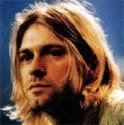 Grunge Music Genre
Grunge Music GenreGrunge music is defined as a hybrid of heavy metal and punk, with the introduction of heavy distorted electrical guitars, contrasting song dynamics and apethetic or angst-filled lyrics. Though the guitars were straight from early 70's metal, the aesthetic of grunge was far from metal. Both the lyrical approach and musical attack of grunge were adopted from punk, particularly the independent ideals of early 80's American hardcore. Grunge were also sometimes referred to as the Seattle Sound, which is a subgenre of alternative rock that emerged in the American state of Washington, particularly in the Seattle area. The grunge aesthetic is stripped-down compared to other forms of rock music and many grunge musicians were noted for their unkempt appearance and rejection of theatrics.

The first wave of grunge bands such as Green River, Mudhoney, Soundgarden were heavier than the second, which began with Nirvana. Nirvana was more melodic than their predecessors and they also had signature stop-start dynamics, which became a genre convention nearly as recognizable as fuzzy, distorted guitars. After Nirvana crossed over into the mainstream, grunge lost many of its independent and punk connections and became the most popular style of hard rock in the '90s.
Grunge became commercially successful in the first half of the 1990s, due mainly to the release of Nirvana's Nevermind and Pearl Jam's Ten. The success of these bands boosted the popularity of alternative rock and made grunge the most popular form of hard rock music at the time. However, many grunge bands were uncomfortable with this popularity. Although most grunge bands had disbanded or faded from view by the late 1990s, their influence continues to impact modern rock music.
Origin Of The Terms
The word grunge is believed to be a back-formation from the US slang adjective grungy, which originated in about 1965 as a slang term for "dirty" or "filthy." Mark Arm, the vocalist for the Seattle band Green River—and later Mudhoney—is generally credited as being the first to use the term grunge to describe this sort of music. Arm first used the term in 1981, when he wrote a letter under his given name Mark McLaughlin to the Seattle zine, Desperate Times, criticizing his band Mr. Epp and the Calculations as "Pure grunge! Pure noise! Pure shit!" Clark Humphrey, editor of Desperate Times, cites this as the earliest use of the term to refer to a Seattle band, and mentions that Bruce Pavitt of Sub Pop popularized the term as a musical label in 1987–88, using it on several occasions to describe Green River. Arm used grunge as a descriptive term rather than a genre term, but it eventually came to describe the punk/metal hybrid sound of the Seattle music scene.
Characteristics
Grunge is generally characterized by a sludgy guitar sound that uses a high level of distortion, fuzz and feedback effects. Grunge fuses elements of hardcore punk and heavy metal, although some bands performed with more emphasis on one or the other. The music shares with punk a raw sound and similar lyrical concerns. However, it also involves much slower tempos, dissonant harmonies, and more complex instrumentation – which is reminiscent of heavy metal. Some individuals associated with the development of grunge, including Sub Pop producer Jack Endino and The Melvins, explained grunge's incorporation of heavy rock influences such as Kiss as "musical provocation." Grunge artists considered these bands "cheesy" but nonetheless enjoyed them; Buzz Osborne of The Melvins described it as an attempt to see what ridiculous things bands could do and get away with. In the early 1990s, Nirvana's signature "stop-start" song format became a genre convention.
Themes
Lyrics are typically angst-filled, often addressing themes such as social alienation, apathy, confinement, and a desire for freedom. A number of factors influenced the focus on such subject matter. Many grunge musicians displayed a general disenchantment with the state of society, as well as a discomfort with social prejudices. Such themes bear similarities to those addressed by punk rock musicians and the perceptions of Generation X. Music critic Simon Reynolds said in 1992 that "there's a feeling of burnout in the culture at large. Kids are depressed about the future." However, not all grunge songs dealt with these issues. Nirvana's satirical "In Bloom" is a notable example of more humorous writing. Several other grunge songs are filled with either a dark or fun sense of humor—Mudhoney's "Touch Me I'm Sick" or Tad's "Stumblin' Man"—though this often went unnoticed by the general public at the time. Humor in grunge often satirized glam metal—for example, Soundgarden's "Big Dumb Sex"—and other forms of popular rock music during the 1980s.








June 14, 2009 at 8:48 PM
pergh..xprnah aku terpikir nak carik info..
no wonder aku suke grunge..
cara grunge d mainkan sendiri dgn lirik dan melodi plus bunyi gitar..
itu semua kombinasi optik yg ada pada diri ini..
giler r..
wa tetiba rasa wa ni true grunge xmemasal..
hahaha
thanks for d info bro
June 14, 2009 at 9:24 PM
Badek: Hahaha. Akhirnya, ada juga yang mengikuti info pasal grunge ni.